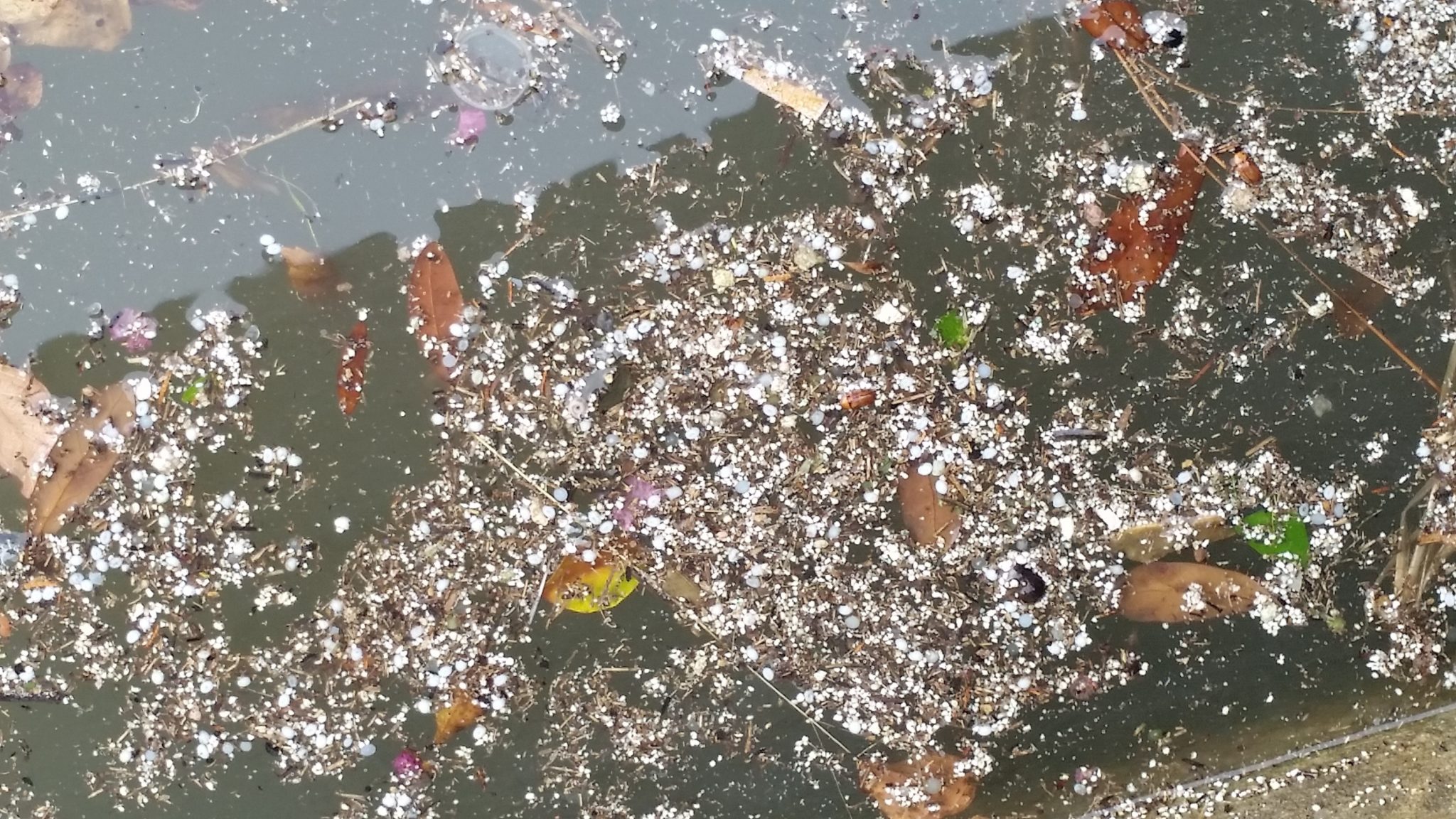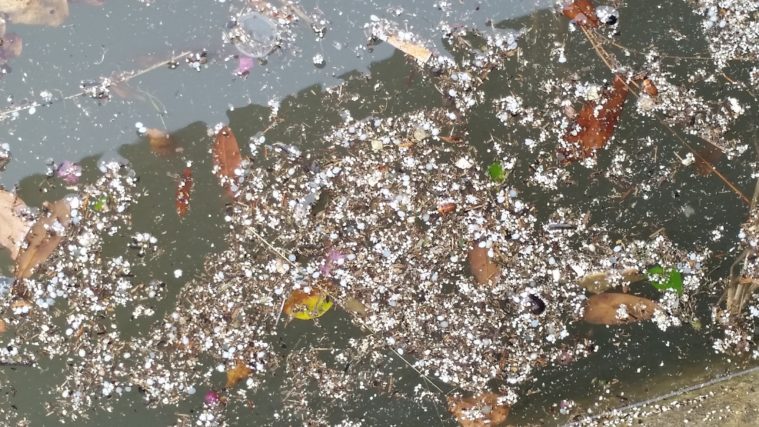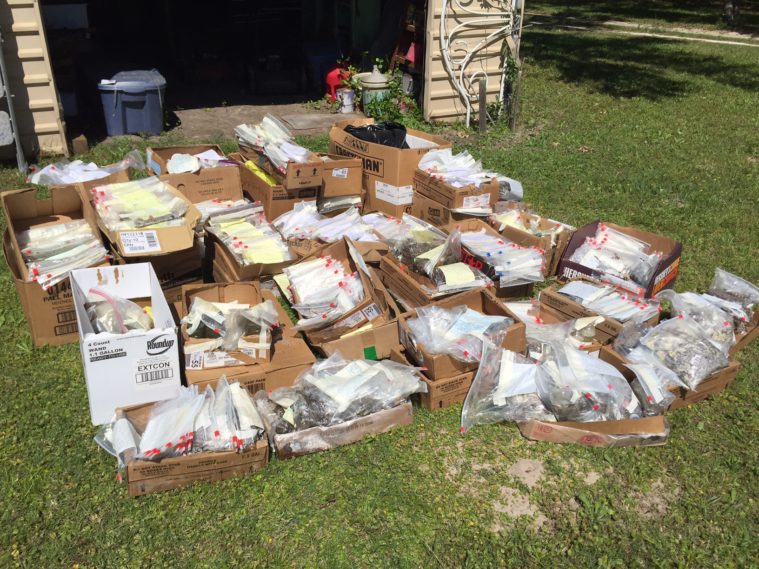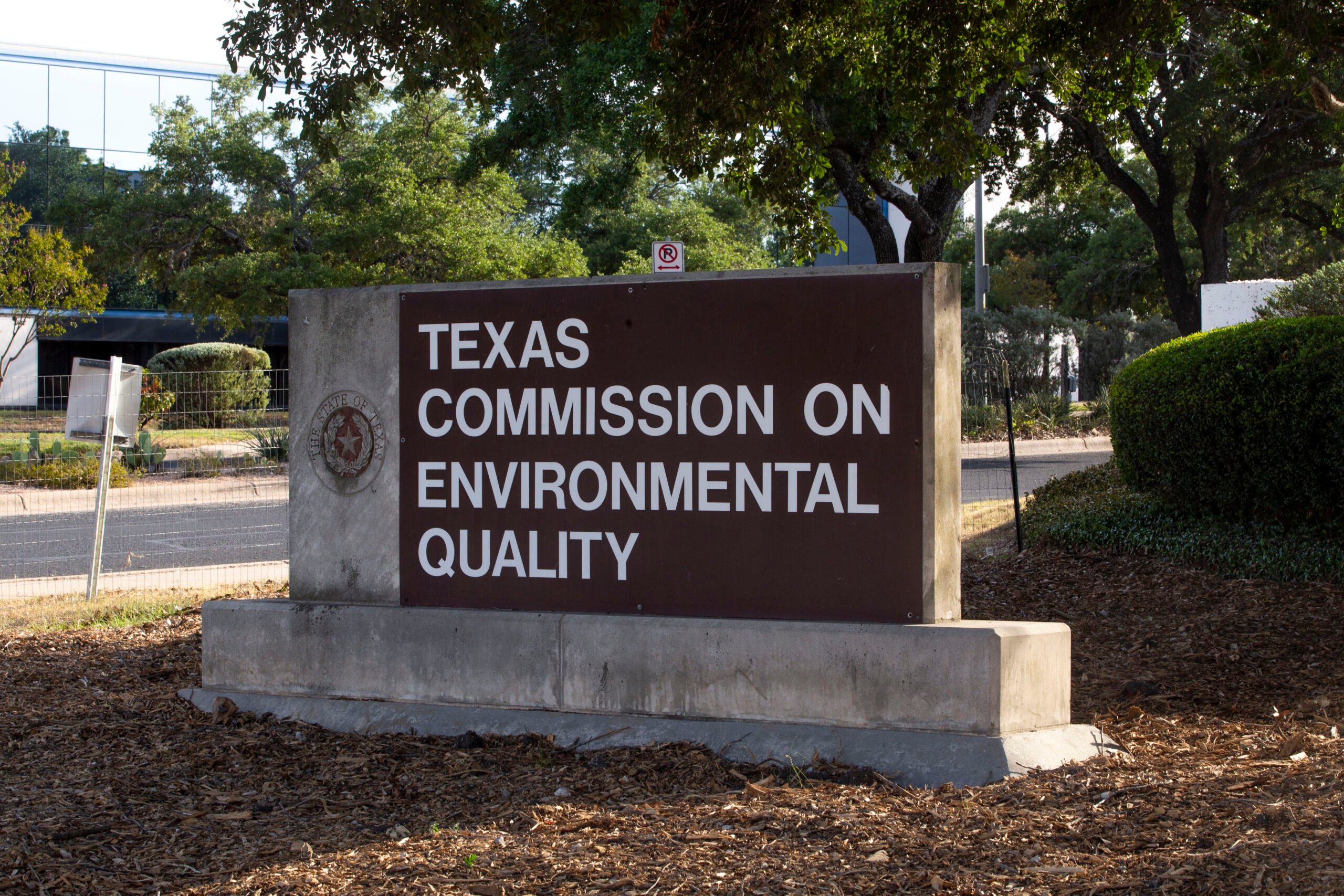
Gulf Coast Environmental Group Sues Plastic Company After Slow Response from TCEQ
The nonprofit San Antonio Bay Estuarine Waterkeeper and an environmental activist are suing to stop Formosa Plastics from discharging plastic pellets into nearby bays and estuaries.


For the last year and a half, Bobby Lindsey and other volunteers with the San Antonio Bay Estuarine Waterkeeper have collected more than 1,600 clusters of BB-sized plastic pellets from the shorelines of Lavaca and Matagorda bays. Formosa Plastics, an offshoot of a Taiwanese plastics company that operates an 1,800-acre petrochemical complex on Lavaca Bay, produces the transparent polyethylene and polypropylene pellets, which can be used to make toys and Tupperware. But the lightweight pellets often blow away during transport within the facility and end up floating in the bays.
Now, after years of complaining to the Texas Commission on Environmental Quality (TCEQ) about Formosa polluting the bays, Lindsey’s group and Diane Wilson, a shrimper-turned-environmental-activist, are suing the company.
“[Formosa’s] actions are very lackadaisical,” said Lindsey. “They don’t follow the rules no matter what TCEQ says.”
In 2009, the EPA fined the company about $3 million for discharging pellets and other harmful chemicals into Lavaca Bay. In 2013, the agency then fined the company an additional $1.5 million for failing to install equipment the EPA had required as part of its 2009 settlement. But that apparently hasn’t been enough to stop Formosa.
Twice in 2016 TCEQ investigators found plastic pellets floating in Cox Creek, downstream of the plant’s discharge point. The agency told Formosa to clean up its act but hasn’t issued any fines so far. The investigations from 2016 are still open. A separate TCEQ investigation of inappropriate waste disposal and records violations at the facility resulted in a fine of more than $200,000 in May.
The lawsuit asks a federal court to issue an injunction to stop the company from allowing plastic pellets to reach the area’s waterways. The group is being represented by Texas RioGrande Legal Aid, a nonprofit that provides free legal services to poor Texans.

After they end up in waterways, the pellets can have long-lasting effects on both marine life and human health. Lindsey said fishermen in the area have found plastic pellets in the guts of the fish they’ve caught. If fish are mistaking the pellets for egg larvae and eating them, toxic chemicals from the pellets could accumulate and make their way up the food chain to humans, he said.
Bill Harvey, a spokesperson for Formosa, said the company had not been served with the legal documents and was unable to comment.
Lindsay said he’s more dismayed by TCEQ’s lenient approach to investigating the problem than by Formosa.
“The problem is that this is a multibillion-dollar corporation that makes huge profits every single day and the fines that TCEQ levies … are not even a slap on the wrist,” he said. “TCEQ doesn’t have the teeth in their bite when it comes to this.”
Erin Gaines, an attorney with Texas RioGrande Legal Aid, said that Formosa has “a long history” of violating environmental laws.
“Had the agencies enforced these laws and made the changes they need to make we wouldn’t have had to step in, but the agencies have let us down,” she said.
TCEQ spokesperson Andrea Morrow told the Observer in an email that the agency does not comment on pending litigation, but pursues enforcement actions “fairly and consistently for all entities it regulates.”
Gaines’ firm has filed the suit under the Clean Water Act’s citizen suit provisions, which allow courts to penalize polluters up to $52,414 per day per violation. Because volunteers with San Antonio Bay Estuarine Waterkeeper have been collecting pellets for the last year and a half, the penalty could add up to more than $50 million.
“These violations are particularly egregious for how long they’ve been going on,” Gaines said. “They’re not isolated. … It is indicative of a larger culture of not complying.”


